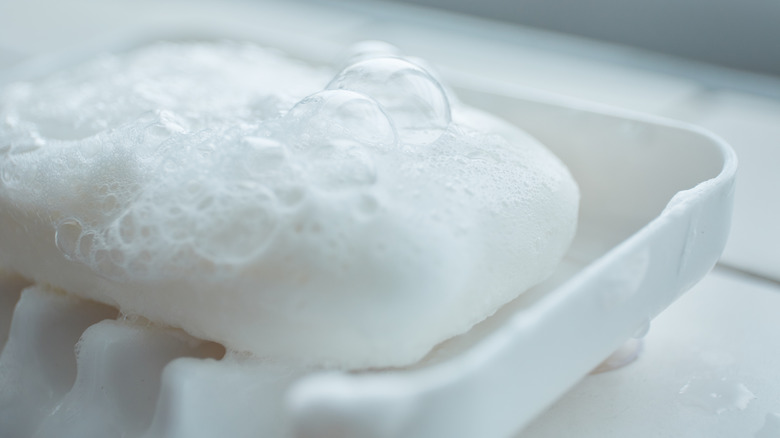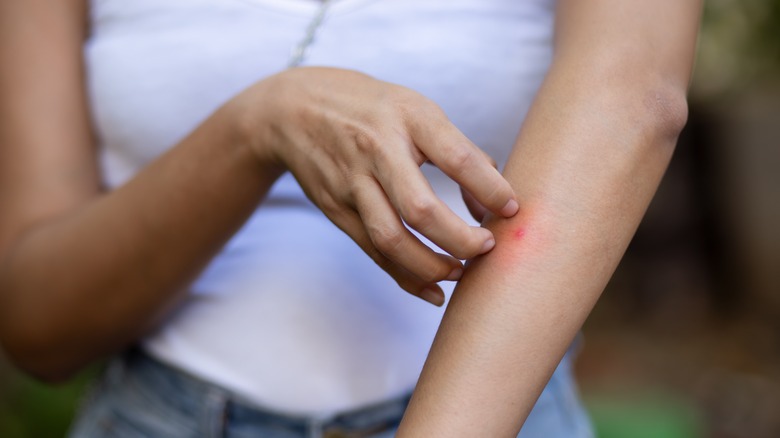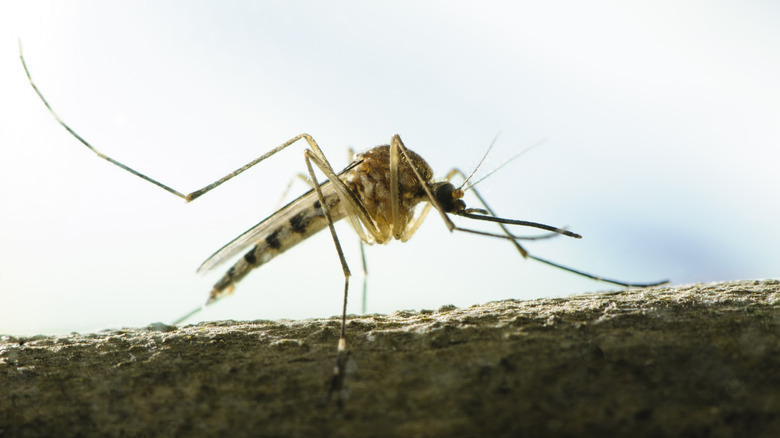Is It True That Bathroom Soap Deters Mosquitoes? Here's What We Know
Could body wash be the key to preventing itchy bug bites? Science has spoken and the answer is: Well, sort of. Mosquitoes are attracted to humans for various reasons, some of which are out of a person's control, such as genetics and age. However, the soap that you use could be making the problem worse or, if you're lucky, better.
There are many household staples that repel mosquitoes, and according to one recent study, you can add bathroom soap to that list. However, not all soaps are made equal. Research shows that some brands and scents are more effective than others at keeping mosquitoes away. So, before you concoct a homemade mosquito repellent with the products in your shower, make sure you're using a science-backed approach. Plus, depending on your natural scent profile, you may not enjoy the same mosquito-repelling benefits as the next person. Let's dive into the facts and see what the experts have to say.
Here's what science says about using bathroom soap to deter mosquitoes
Mosquitoes rely on their olfactory senses, so it's no surprise that certain smells alter their behavior. A 2023 study published in the iScience journal found that soaps modify the scent signature of human hosts. Some soaps have a repelling effect, which makes humans less appealing to mosquitoes, but other soaps do the opposite. That means that the body wash you use may make you more delicious to mosquitoes.
The study tested the effects of four popular soap brands in the United States: Dial, Dove, Native, and Simple Truth. The results showed that the chemical makeup of these soaps combined with the natural scent profile of each participant led to varied outcomes. For example, Dove and Simple Truth significantly increased mosquitoes' attraction to some participants. However, this was not the case for other subjects who were tested with these same soaps, indicating that bodily chemistry also plays a role.
Native soap was the only brand that consistently deterred mosquitoes during the trials. The study said that of all the soaps tested, Native had the most significant impact on the insects' response to humans. Native-washed participants "tended to be avoided" overall, and a "significant aversion" was observed with one volunteer in particular. However, conclusive results are hard to obtain as some people have an olfactory "odor print" that is more appealing to mosquitoes than others, which is based on factors like gender, age, diet, and overall health.
Coconut products may be the key to keeping mosquitoes away
Instead of experimenting with soaps, you may be able to keep pesky mosquitoes away with coconut. A fascinating 2018 study by the U.S. Department of Agriculture (USDA) said that coconut oil fatty acids have very "strong repellency and long-lasting effectiveness" for several insects that feast on humans, including mosquitoes, ticks, bed bugs, and biting flies. In the study, coconut oil-derived free fatty acids were 90% effective at keeping mosquitoes away.
In the iScience study, the Native soap that significantly deterred mosquitoes was coconut and vanilla scented. "It confirms what past studies have found, that mosquitoes don't like coconut-scented products, so our safest bet right now is to use those," said one of the authors of the study, Clément Vinauger, Ph.D., to NBC News. In an interview with Medical News Today, Vinauger said that coconut-derived products could be an effective solution if you're prone to getting mosquito bites. However, Vinauger added that traditional repellents should be used in parts of the world where mosquito-borne diseases are present.


